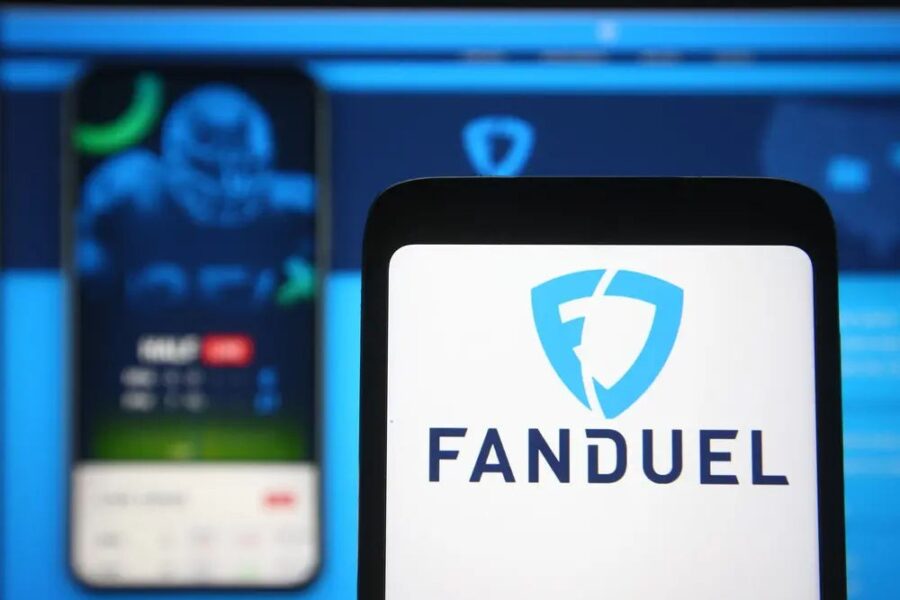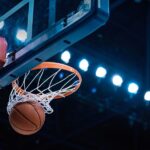FanDuel and Amazon partner for NBA and WNBA

FanDuel has partnered with Amazon to become the odds provider and partner of the NBA and WNBA on streaming platform Amazon Prime Video.
NBA viewers using Prime will now have access to the operator’s bet tracking and odds view features. FanDuel will also provide betting content throughout the NBA on the Prime platform.
FanDuel President of Sports Mike Raffensperger said, “Our partnership as the official odds provider for NBA and WNBA on Prime Video represents a significant milestone in how we connect with basketball fans. By integrating custom content into Prime Video’s NBA broadcasts, we will enhance the fan viewing experience and connect with new audiences.”
NBA analyst for Prime, Blake Griffin, will serve as an ambassador for FanDuel’s NBA offerings and will be featured across the campaign on social media and at live events.
Amazon Ads Head of US Video and Live Sports Sales Danielle Carney added, “It’s important to partner with brands that are invested in enhancing the fan experience. We’re helping to transform how brands reach highly engaged consumers. By prioritizing innovation and storytelling we can create unique opportunities for brands to connect with their audiences that are more meaningful.”
Last month, FanDuel announced a partnership with sports betting network VSiN to provide sports betting content across the US.
Verticals:
Sectors:
Topics:
Dig Deeper
The Backstory
Streaming, sportsbooks and a new battleground for the NBA
The NBA’s embrace of legalized wagering has moved from arena signage to the center of the screen. In a recent step, FanDuel partnered with Amazon to supply official odds and betting content on Prime Video’s NBA and WNBA streams, integrating live bet tracking and an “odds view” into broadcasts. The deal positions a top sportsbook at the point of consumption, aiming to convert casual viewers into bettors while deepening engagement among existing customers. Amazon is pitching it as fan enhancement, with on-air talent, including analyst Blake Griffin, fronting the experience across social and live touchpoints.
That kind of integration underscores how rapidly the line between sports media and betting has blurred since nationwide expansion of regulated wagering. It also heightens scrutiny. As more betting tools appear inside broadcasts, leagues and regulators face rising pressure to ensure that the product remains credible and that players, officials and team staff are insulated from new incentives and threats. The NBA’s balancing act—unlock new revenue and fan interest without compromising competitive integrity—now threads through its media, sponsorship and compliance strategies.
Integrity alarms grow louder as prop bets surge
The league and its union have been forced into a more defensive stance as prop markets proliferate. After a run of high-profile cases, the NBA and the National Basketball Players Association publicly backed tighter controls, especially on player propositions. They supported limits to curb abuse and reduce interference risks following federal probes involving multiple players. The most damaging episode came in 2024, when Jontay Porter pleaded guilty to conspiracy charges after manipulating his availability to influence wagers on his unders; he received a lifetime ban from the NBA.
State regulators have not waited on a national consensus. Ohio and New Jersey have already trimmed certain prop offerings, and the NBA asked partners to pull “under” props for two-way players, a category seen as more vulnerable due to lower pay and tenuous roster status. The focus on prop bets is intentional: markets tied to a single player’s points, rebounds or minutes often carry the highest manipulation risk and can turn individual health updates or coaching decisions into betting events.
The concerns extend beyond rules violations to player welfare. Athletes report increased harassment tied to wagers, a byproduct of millions of micro-outcomes now monetized in real time. That dynamic surfaced in the culture conversation when Michael Porter Jr. warned the NBA’s betting problem is “only going to get worse”, citing social pressures and financial temptation for players and their circles. While anecdotal, his comments reinforced why the league is keen to narrow the riskiest markets before they become embedded habits among fans and bettors.
Washington’s attention: prediction markets test the perimeter
The integrity debate is not confined to sportsbooks licensed by states. The NBA has asked federal regulators to pump the brakes on a parallel frontier: sports prediction markets governed, if at all, by commodities law. In a letter to the Commodity Futures Trading Commission, league counsel warned that sports event contracts could evolve into prop-like instruments on officiating, rules and injuries, risk areas with little oversight. The NBA underscored that state-regulated books are policed by specialized gaming divisions, while the CFTC lacks a dedicated sports unit.
The plea followed a similar alert from the Michigan Gaming Control Board, signaling an emerging jurisdictional clash: who should control novel wagering products that look like bets but are packaged as event contracts? The NBA’s message to Washington was pragmatic—if the CFTC allows such markets, build guardrails that reflect sports-specific integrity risks. The outcome could shape whether new platforms can list game-adjacent contracts that sit outside state sportsbook rules yet influence the same participants and outcomes.
Sponsorships deepen as teams and casinos court fans
Even as guardrails tighten, commercial ties continue to multiply. On the WNBA side, the Indiana Fever named Bet365 as their official sportsbook partner for 2025, extending the book’s push into women’s basketball after a deal with the Chicago Sky. The partnership brings betting content into team media, apps and game-day programming, a sign that franchises see wagering as an engagement tool during a period of surging WNBA interest and attendance.
Casinos are also leaning into league branding to capture crossover traffic from playoff audiences. Caesars launched NBA Triple Double Power Combo, a basketball-themed slot available in several states and Ontario, timing the roll-out with the postseason. It is the first NBA-branded slot on Caesars’ online platforms, developed with Games Global and marketed as a gateway for fans who follow the playoffs but may not place sports bets. For operators, these products diversify revenue and keep users inside their ecosystems between games.
The widening sponsorship map raises practical questions. Team-level deals that embed betting prompts into official channels can amplify integrity and reputational risks if enforcement lags. Conversely, they create clear lines of accountability in state-regulated environments, where leagues and books share data, enforce exclusions and coordinate on suspicious activity. That tension—more touchpoints versus more oversight—will define how aggressively franchises expand betting integrations next season.
The stakes: credibility, regulation and the next rights cycle
The NBA’s strategy rests on two tracks: scale engagement via media and partners, and narrow the riskiest markets to protect the game. The Prime Video odds integration exemplifies the first. The push to restrict player props and the warning to the CFTC anchor the second. If the league can standardize limits across states and keep nontraditional platforms from offering prop-like contracts without sports-specific oversight, it can argue that growth in betting content does not come at the expense of fairness.
Failure would carry costs. Another manipulation scandal or a wave of harassment tied to in-broadcast prompts could undercut fan trust—and complicate negotiations in the next media-rights cycle, where streaming platforms will pay a premium to integrate data, micro-markets and targeted ads. The league’s partners have a stake too. Sportsbooks need credible outcomes to retain customers, platforms like Amazon want a safe user experience, and teams depend on clean competition to sell tickets and sponsorships. Expect more coordination on standardized market offerings, data sharing and education for players and staff as the calendar turns to the heart of the season.
The broader market is still early. Legal books, team partners and streaming distributors are experimenting with formats that keep fans watching, tapping and spending. The policy perimeter is moving in parallel. The choices regulators and leagues make in the next year—where to draw lines on props, how to police event contracts, how deeply to embed odds in broadcasts—will set the template for basketball’s betting era. The NBA’s bet is clear: growth and guardrails can coexist. The margin for error is narrowing.








